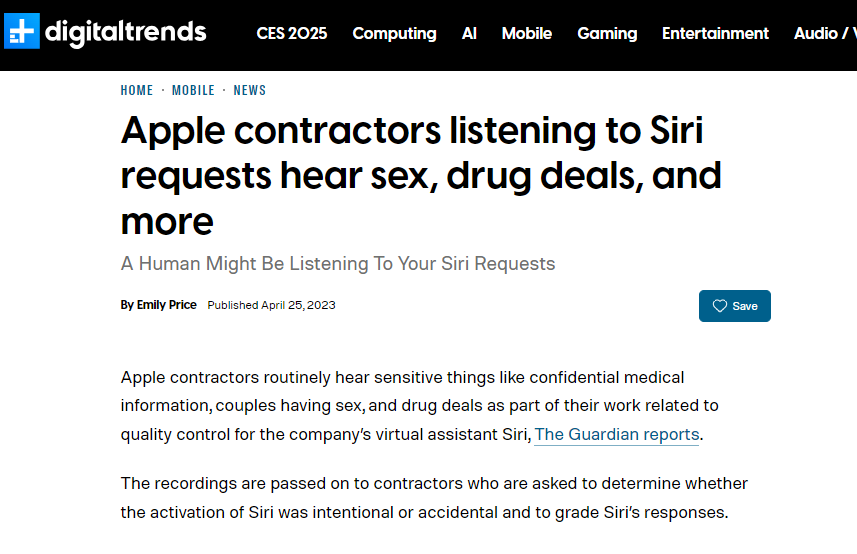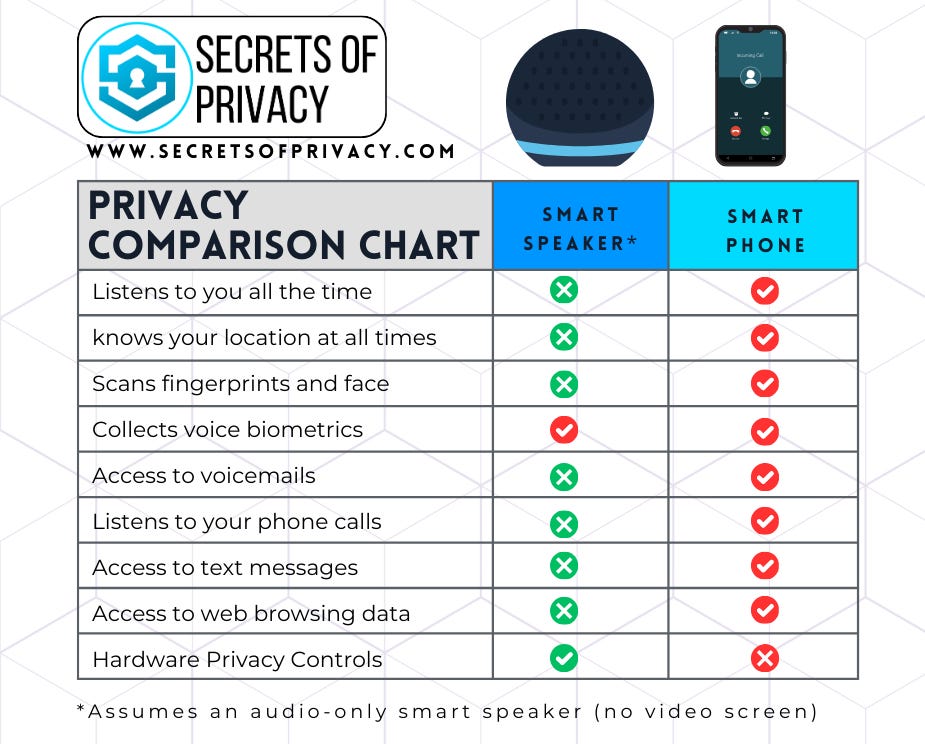The Truth About Smart Speakers and Privacy
Unboxing the Privacy Implications of Your Holiday Smart Speaker Gift
As we settle into the new year, many of our readers are likely exploring fancy new smart speakers received as holiday gifts. Whether it's an Amazon Echo, Google Home, or Apple HomePod, these devices have become staples in our homes and offices. But holdouts to adoption remain due to the always-listening nature of these devices.
Are smart speakers really a significant threat to our privacy? Or are they no worse than the smartphones we carry everywhere? Could they even be less intrusive than smartphones? We take a look at these issues and more below.
Understanding Smart Speaker Technology
Smart speakers, at their core, are voice-activated devices that use artificial intelligence to respond to user commands and questions. They're designed to make our lives easier by allowing us to control smart home devices, play music, set reminders, and access information hands-free. However, to function effectively, these devices need to be always listening for their wake word (e.g., "Alexa," "Hey Google," or "Hey Siri").
There are generally two types of smart speakers: audio only devices and devices with a display screen. Audio only devices are less intrusive for variety of reasons, including:
No camera
Fewer integrations with third party apps, so less access to personal data
Less advertising options due to the lack of a visual component
Based on the most recent data, approximately 100 million individuals, representing 35% of the U.S. population aged 12 and above, own a smart speaker. Compare that to a near 100% adoption for smartphones. The top three brands are Amazon (Alexa), Apple and Google. Amazon Alexa is by far the leader, at least in the United States. Some homes may have a mix of devices.
How They Work
When you speak the wake word, the smart speaker begins recording your voice and sends that audio data to the cloud for processing. This is where the “magic” happens – your voice is converted to text, analyzed for intent, and a response is generated. Often times this also involves using an integration, such as with your personal calendar or a light switch. This process happens in milliseconds, giving the illusion of a seamless conversation with your digital assistant.
Privacy Concerns
While smart speakers offer convenience, they also raise several privacy concerns:
Always Listening: The fact that these devices are constantly listening for their wake word makes many users uncomfortable. There's a fear that private conversations could be inadvertently recorded or reviewed by actual humans. Or in the case of one Alexa incident, a private recording sent to another user without permission.
Data Collection: Smart speakers collect and store user data to improve their services and provide personalized experiences. This data can include voice recordings, usage patterns, and interactions with other connected devices. Will providers use data to build or augment customer profiles?
Third-Party Access: There are concerns about who might have access to the data collected by smart speakers. This includes potential hackers, third-party developers, law enforcement, and even employees of the companies that make these devices.
Ad Targeting: Companies like Amazon use smart speaker interaction data to infer user interests and target personalized ads. They also use smart speakers to deliver ads based on data obtained elsewhere. In the case of Amazon, that could be from your Amazon.com shopping history. In the case of Google, that could be your internet search history.
Smartphones are privacy liabilities. There are several ways to reduce the privacy risk. You can find many by scrolling through our archives. A kill shot of sorts is to ditch your iPhone and Googled Android phone. We did a write up a few months back on privacy friendly mobile operating systems. Check it out here. It’s easier than you think an a high privacy ROI move.
Comparing Smart Speakers to Smartphones
While smart speakers do pose privacy risks, it's important to put these risks in context. In many ways, the privacy concerns associated with smart speakers are similar to those we face with our smartphones:
Always On: Like smart speakers, our smartphones are always on and often have voice assistants (Siri, Google Assistant) that can be activated by voice.
Data Collection: Smartphones collect vast amounts of data about our lives, including location data, browsing history, and app usage.
Microphone Access: Many smartphone apps have access to our device's microphone, potentially allowing them to listen in on our conversations.
Ad Targeting: Our smartphone usage is heavily mined for ad targeting purposes.
So which is worse for privacy - smart speakers or smartphones? Here’s a comparison chart we put together:
The data in this graphic is admittedly cherry-picked a bit. But the idea that we’re getting at is that smartphones are worse than smart speakers on the most high risk privacy metrics, at least for your average user. A key reason is that we carry smartphones with us everywhere we go, while smart speakers are stationary. That’s not to say that smart speakers are low risk or privacy friendly. Only that the risks are overblown if you’re already using a smartphone.
Mitigating Privacy Risks
While it's important to be aware of the privacy implications of smart speakers, there are steps you can take to mitigate these risks:
Keep reading with a 7-day free trial
Subscribe to Secrets of Privacy to keep reading this post and get 7 days of free access to the full post archives.






